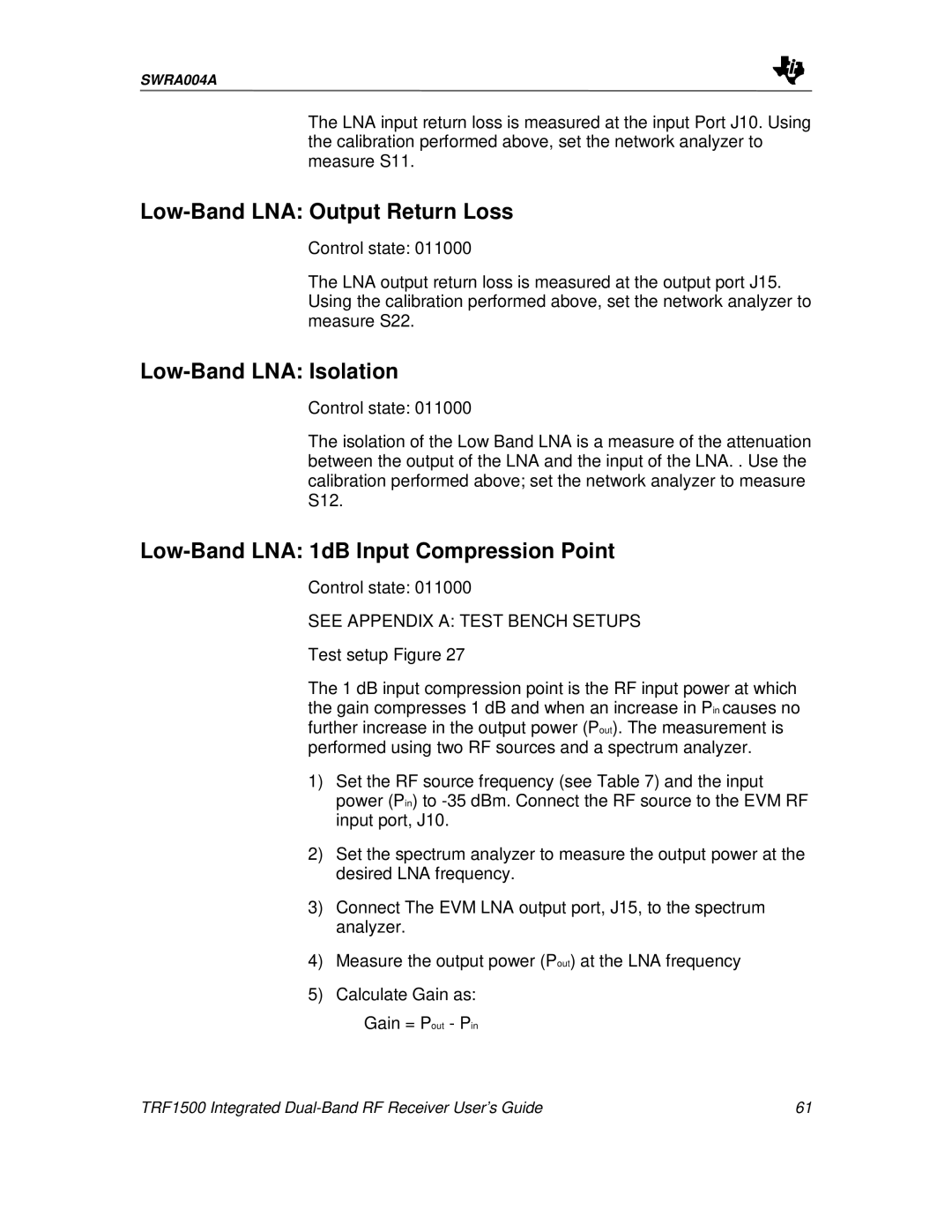SWRA004A
The LNA input return loss is measured at the input Port J10. Using the calibration performed above, set the network analyzer to measure S11.
Low-Band LNA: Output Return Loss
Control state: 011000
The LNA output return loss is measured at the output port J15. Using the calibration performed above, set the network analyzer to measure S22.
Low-Band LNA: Isolation
Control state: 011000
The isolation of the Low Band LNA is a measure of the attenuation between the output of the LNA and the input of the LNA. . Use the calibration performed above; set the network analyzer to measure S12.
Low-Band LNA: 1dB Input Compression Point
Control state: 011000
SEE APPENDIX A: TEST BENCH SETUPS
Test setup Figure 27
The 1 dB input compression point is the RF input power at which the gain compresses 1 dB and when an increase in Pin causes no further increase in the output power (Pout). The measurement is performed using two RF sources and a spectrum analyzer.
1)Set the RF source frequency (see Table 7) and the input power (Pin) to
2)Set the spectrum analyzer to measure the output power at the desired LNA frequency.
3)Connect The EVM LNA output port, J15, to the spectrum analyzer.
4)Measure the output power (Pout) at the LNA frequency
5)Calculate Gain as:
Gain = Pout - Pin
TRF1500 Integrated | 61 |
